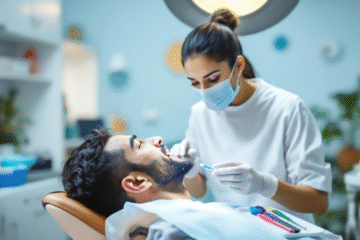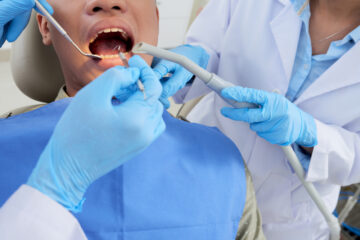If you’ve recently undergone a root canal treatment or you’re experiencing anxiety about the procedure or simply want to be prepared for recovery, this post-treatment guide will shed light on what to expect after a root canal.While individual’s experience may vary it’s essential to know what comes next.
Immediate Post-Treatment
- Numbness: After your root canal, the anesthesia will still be in effect for a couple of hours, so it’s common to experience numbness in your lips, tongue, or gums. Avoid eating or drinking until the numbness wears off to prevent accidental bites.
- Discomfort: You may experience some discomfort or pain in the treated area or surrounding tissues. Take medications as prescribed by the dentist.
- Sensitivity: Your tooth may feel sensitive to temperature or pressure changes. This sensitivity is usually temporary and will subside in a few days.
Short Term Recovery
In the days following your root canal, you may:
Experience mild pain: Some pain or discomfort is normal after a root canal. If your pain persists or worsens, contact your dentist.
Notice temporary swelling: Some swelling or inflammation around the treated tooth is common. Applying an ice pack to the affected area can help reduce swelling.
Need to follow a soft food diet: Stick to soft easily chewable foods for a few days to avoid putting excessive pressure on the treated tooth.
Long-Term Expectations
After a root canal, you can expect:
Tooth restoration: Your dentist may recommend a crown or filling to restore the treated tooth to its full function and appearance.
Improved oral health: A successful root canal can eliminate infection and prevent further damage to the tooth and surrounding tissues.
Normal tooth function: With proper care, the treated tooth can function normally for years to come.
Tips for a smooth recovery
To ensure a smooth recovery after a root canal:
Follow your dentist’s instructions: Adhere to your dentist’s recommendations for pain management, diet, and follow-up care.
- Practice good oral hygiene: Maintaining proper oral hygiene is crucial after a root canal. Continue brushing and flossing your teeth, but be gentle around the treated area. A soft-bristled toothbrush is recommended as it minimizes irritation to sensitive gums.
- Attend follow-up appointments: Your dentist may schedule a follow-up visit to check your healing progress. Don’t skip this appointment as it is instrumental in determining whether additional treatment, such as a dental crown, is necessary to protect your tooth.
Recovering from a root canal is a manageable process when you are well-informed and proactive about your aftercare. Remember, everyone’s experience is unique; hence it is essential to listen to your body and communicate with your dental provider



